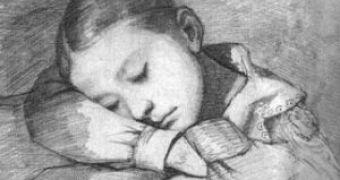Researchers warn that a common sleep disorder such as sleep disordered breathing may hinder school performances in children because they cannot get a good night's sleep and their mental ability and other cognitive skills are decreased during classes.
Sleep disordered breathing is very frequent among children and is usually caused by the presence of large tonsils and undetected adenoids in the breathing passage. The tonsils block and obstruct the breathing passage, leading to breathing problems during sleep, especially during deep sleep. Therefore, taking into account the fact that our kids cannot get a proper rest during the night, we should not be amazed by the fact that they obtain poor grades in school.
Robin A. Dyleski, MD director of Pediatric Otolaryngology at The New York Eye and Ear Infirmary explained: "One reason your child may not be getting a good night's sleep is that he or she is having breathing problems. The symptoms for breathing problems include: snoring, restlessness, gasping and pauses in breathing."
"Pauses in breathing (sometimes called sleep apnea, but today referred to as 'sleep disordered breathing') cause a reduction of oxygen in the bloodstream. Over 90 percent of children who snore are at risk for sleep disordered breathing," she added.
Treatment for sleep disordered breathing may simply consist in taking a drug or it may involve surgical intervention in order to remove the key-factor which causes the obstructions - the large tonsils or adenoids. The surgical removal of tonsils is medically termed as tonsillectomy, while the same procedure which involves adenoids is called adenoidectomy. Adenoids are known as pharyngeal tonsils because they are made of tonsil-like tissue and are placed in the upper part of the throat, right below the nose.
"If obstructive adenoids or tonsils are removed, and your child's sleep is improved, it may not only help with school work. Many children experience less asthma, less hyperactivity, improved attention span and colds seem to get better faster," said Dr. Dyleski.
Photo: Gustave Courbet, Portrait of Juliette Courbet as a Sleeping Child, 1841

 14 DAY TRIAL //
14 DAY TRIAL //